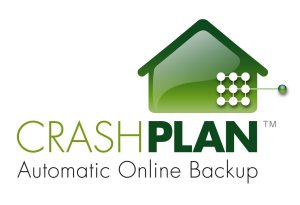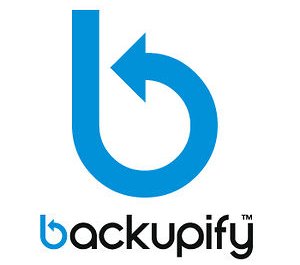Before our lives became so digitized, we had no backup plan for our information. Now that we digitize practically everything, where having backup of information is now very possible, we still don’t do it. Often it’s a project we’ll get around to one day. Unfortunately, that “day” always comes after some major file loss disaster.
I’ve always had some type of backup system, but those past “systems” were rudimentary, non-automatic, non-redundant, and local. Luckily, I now have a solution to all. I’ve got an advanced backup system that’s automatic, redundant, with data backed up on site and off site. Below is my current backup plan. Eager to hear if you have anything that’s substantially different that you recommend.
On-site backup of all data
The first and most common way to backup your system is to get a monstrous brick hard drive, 3 TB, and use the software on it to set up an automated backup of all your data. I’ve got a Seagate drive with the Memeo software. There’s nothing so great about the software but I check every day to make sure it’s still working and backing up files.
Off-site backup of all data
 I’ve used CrashPlan, an offsite/online backup service for about a year and a half. The primary reason I purchased the product was purely for security purposes. The only backup I had of all my data was in my home. Should I get robbed or my home goes up in flames I was screwed. Now I’ve got a copy of all my data in another secure location. Offsite backup is critical and I can’t believe I waited this long to have one. One of the other nice features is that it creates multiple historical copies of your documents. One time one of my colleagues accidentally overwrote one of my documents. It would have taken me at least a day to recreate it, but I was able to log on to CrashPlan and find an earlier version that was complete. You have an experience like that and the product, which costs me only $60/year, pays for itself. The reason I chose CrashPlan is because it’s cheaper than the competitors and their tech support has been top notch. They have options to back up multiple computers in your household or small office if you so choose.
I’ve used CrashPlan, an offsite/online backup service for about a year and a half. The primary reason I purchased the product was purely for security purposes. The only backup I had of all my data was in my home. Should I get robbed or my home goes up in flames I was screwed. Now I’ve got a copy of all my data in another secure location. Offsite backup is critical and I can’t believe I waited this long to have one. One of the other nice features is that it creates multiple historical copies of your documents. One time one of my colleagues accidentally overwrote one of my documents. It would have taken me at least a day to recreate it, but I was able to log on to CrashPlan and find an earlier version that was complete. You have an experience like that and the product, which costs me only $60/year, pays for itself. The reason I chose CrashPlan is because it’s cheaper than the competitors and their tech support has been top notch. They have options to back up multiple computers in your household or small office if you so choose.
Moving all my contacts to the cloud
 I had an absolutely miserable experience with Microsoft Outlook and Business Contact Manager for which I spent years trying to come up with a solution. I even tried working my contacts at Microsoft to come up with a solution. The net result was Microsoft failed me and I moved to Google Apps. I had to pay someone to copy and paste a specific field of historical data that Microsoft refused to make available for export (For more, read: How I Recovered from Choosing a Bad Technology and How to Protect Yourself). Outlook’s backup “solution” was only a reminder. The program automatically inserted a once a week calendar entry that reminded me to backup my data.
I had an absolutely miserable experience with Microsoft Outlook and Business Contact Manager for which I spent years trying to come up with a solution. I even tried working my contacts at Microsoft to come up with a solution. The net result was Microsoft failed me and I moved to Google Apps. I had to pay someone to copy and paste a specific field of historical data that Microsoft refused to make available for export (For more, read: How I Recovered from Choosing a Bad Technology and How to Protect Yourself). Outlook’s backup “solution” was only a reminder. The program automatically inserted a once a week calendar entry that reminded me to backup my data.
 I now have everything in Google Apps. I was surprised how easy it was to import a bunch of PST files for emails, contacts, and calendaring. Once in the cloud, I also sync all the information with Zoho CRM and backup all the contact, email, online documents, and calendaring information with Backupify which runs once every day.
I now have everything in Google Apps. I was surprised how easy it was to import a bunch of PST files for emails, contacts, and calendaring. Once in the cloud, I also sync all the information with Zoho CRM and backup all the contact, email, online documents, and calendaring information with Backupify which runs once every day.
Cloud drives for easily accessible copies
Lastly, we use DropBox, SugarSync, and Google Drive to share, access from anywhere, and backup our most critical company documents.
My protection
In summary, I have the following:
- Two backups of all my data – Local and off site
- Backup, shareability, and easy access to my most critical data
- Contacts, calendars, and email backed up daily
- Except for the daily backups of contacts, calendars, and emails everything else is backed up the moment it’s saved
- Multiple historical copies of documents backed up should I need an earlier version
Total ongoing cost is about $30/month for everything. That includes the cost of Zoho CRM and Google Apps which delivers far more service than just backup
Get it right the first time – There’s a hefty cost to exit
While all of these backups and redundancy have been valuable, it’s important to note that making a decision of which backup solution to use shouldn’t be taken likely. There is definitely a cost to exit as starting any backup solution takes time and effort. Once people choose a backup solution, they stick with it unless one comes up that’s better and even more automatic. For example, if I were to leave CrashPlan it would be costly and time consuming for me to leave one online backup solution and start another one. Whatever decision you choose, make sure you’ll be comfortable sticking with it for years.




